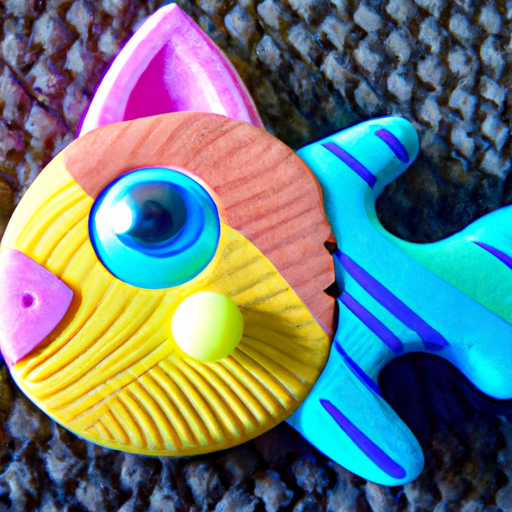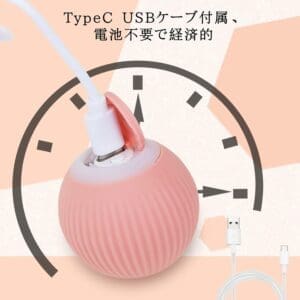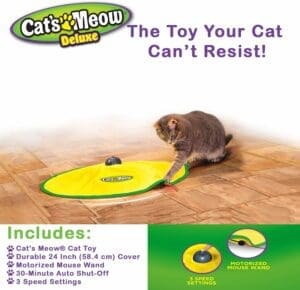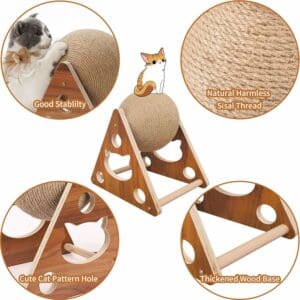If you’ve recently welcomed a furry bundle of joy into your home in the form of a tiny kitten, chances are you may be dealing with one particular challenge: their sharp claws. As your adorable kitten grows, their teeth and claws start to develop, leading to the inevitable stage of teething. But fear not! In this article, we’ll explore some tried and true methods to help soothe those sharp claws and ensure a harmonious coexistence between you and your new feline friend.
Understanding Kitten Teething
Teething is a normal and necessary process for kittens as they grow into adulthood. Similar to human babies, kittens go through a stage of teething where their baby teeth are replaced with permanent adult teeth. It is important for cat owners to understand the teething process in order to provide appropriate care and support for their kittens.
When does teething start?
Teething in kittens usually begins around three to four months of age. This is the time when their baby teeth start to fall out and the adult teeth start to emerge. It is during this stage that kittens may experience discomfort and engage in behaviors such as chewing and biting to alleviate the discomfort.
How long does teething last?
The entire teething process in kittens typically lasts for about six to eight months. This can vary slightly from one kitten to another, but the majority of kittens will have their permanent teeth fully developed by the time they reach eight months of age. It is important to note that teething is not a one-time event, but rather a gradual process.
What are the signs of teething?
There are several signs that can indicate that a kitten is teething. These may include drooling, increased chewing behavior, sensitivity around the mouth, swollen gums, irritability, and even loss of appetite. It is important to be aware of these signs so that appropriate measures can be taken to soothe the kitten’s discomfort.
Why do kittens bite during teething?
Kittens may bite more frequently during the teething process due to the discomfort they experience. Biting provides them with relief by applying pressure to their gums. It is important to understand that this behavior is a natural response to teething and is not a sign of aggression. However, it is essential to redirect and discourage biting to prevent any harm or aggression as the kitten grows older.
Providing Appropriate Chew Toys
To help soothe a teething kitten and redirect their biting behavior, it is crucial to provide them with appropriate chew toys. These toys not only provide relief to the kitten’s gums but also help in promoting healthy dental development.
Choosing safe and durable toys
When selecting chew toys for your teething kitten, it is important to choose toys that are safe and durable. Ensure that the toys are made from non-toxic materials and do not have any small parts that can be easily chewed off and swallowed. Opt for toys specifically designed for teething kittens, as they are often made with softer textures to be gentle on their gums.
Types of toys to consider
There are various types of chew toys that can be beneficial for teething kittens. Soft rubber toys, teething rings, and textured toys can provide the necessary relief for their sore gums. Some toys even come with a cooling feature that can help numb the discomfort and provide additional relief.
Avoiding potentially dangerous items
It is crucial to avoid giving your teething kitten items that can be potentially dangerous. This includes items such as plastic bags, strings, small objects that can be easily swallowed, or any items that are not specifically designed for teething kittens. Always prioritize their safety by carefully selecting appropriate chew toys.
Refreshing and rotating toys
To keep your teething kitten engaged, it is important to refresh and rotate their chew toys. Kittens, just like children, can become bored with their toys after a while. By introducing new toys or rotating their existing ones, you can keep them entertained and prevent them from seeking alternative and potentially harmful objects to chew on.
Helpful Tip: Keeping Toys Chilled
Chilling your kitten’s chew toys can provide additional soothing benefits during the teething process. Cold temperatures can help numb the sore gums, providing temporary relief for your kitten.
Benefits of chilled toys
Chilled toys offer a cooling effect on the kitten’s gums, which can help reduce inflammation and provide temporary pain relief. The cold temperature can also make the toys more enticing for the teething kitten, encouraging them to chew on the toys instead of other inappropriate objects.
Safe ways to chill toys
To chill your kitten’s chew toys, you can place them in the refrigerator for a short period of time. It is important to note that toys should not be frozen, as extreme cold temperatures can cause damage to their delicate gums. Always monitor the toys and remove them from the refrigerator after a brief period to ensure they are not too cold for your kitten to handle.
Alternatives to chilled toys
If chilling the toys is not a viable option for you or your kitten, there are alternative methods to provide relief. You can try soaking the toys in water and then freezing them in ice cube trays. The resulting ice toys can be less cold than refrigerated toys but still provide some soothing benefits for your teething kitten.
Promoting Dental Health
Apart from providing appropriate chew toys, it is essential to promote good dental health for your teething kitten. Establishing dental care routines from a young age can ensure that their teeth and gums remain healthy throughout their life.
Introducing dental care routines
Starting dental care routines early on can help your teething kitten become accustomed to the process and make it easier to maintain their oral health as they grow older. Begin by gently introducing your kitten to the sensation of having their mouth and teeth touched. Gradually progress to using a soft toothbrush or finger brush to clean their teeth.
Using kitten-friendly toothpaste
When brushing your kitten’s teeth, it is important to use toothpaste specifically formulated for cats or kittens. Human toothpaste contains ingredients that can be harmful if swallowed by cats. Kitten-friendly toothpaste comes in various flavors that are more appealing to them, making the toothbrushing experience more enjoyable for both you and your kitten.
Avoiding human toothpaste and products
Human toothpaste and other dental products should never be used on cats or kittens. These products often contain ingredients such as fluoride and xylitol, which can be toxic to cats if ingested. Always opt for dental products specifically designed for cats or consult with your veterinarian for recommendations.
Regular professional dental check-ups
In addition to regular dental care at home, it is important to schedule regular professional dental check-ups for your teething kitten. A veterinarian can assess the kitten’s teeth and gums, identify any potential dental issues, and provide appropriate treatments or recommendations to ensure optimal oral health.
Redirecting Biting Behavior
Redirecting your teething kitten’s biting behavior is crucial to prevent any harm and promote appropriate play. By implementing positive reinforcement techniques and providing distractions, you can redirect their biting instincts in a positive and effective manner.
Understanding the importance of redirection
Kittens naturally explore the world around them through their mouths, and their teething phase can intensify this behavior. It is essential to redirect their biting tendencies to appropriate objects, such as their chew toys, to prevent them from biting and potentially injuring themselves or others.
Positive reinforcement techniques
Using positive reinforcement techniques can be highly effective in redirecting your kitten’s biting behavior. Whenever your kitten bites or chews on an appropriate toy, praise and reward them with treats or gentle petting. This positive association will encourage them to continue engaging with their toys instead of biting inappropriately.
Using distractions effectively
Providing distractions for your teething kitten can help redirect their attention from biting. Interactive toys, puzzle feeders, or even playing with them using wand toys can help engage their energy and focus, reducing the likelihood of them biting out of boredom or frustration.
Avoiding punishment
It is important to avoid using punishment as a way to discourage biting behavior in kittens. Punishment can create fear and anxiety, which can negatively impact their overall behavior and trust in their owners. Instead, focus on positive reinforcement and redirection techniques to establish a healthy and mutually respectful relationship with your teething kitten.
Creating a Safe Environment
Creating a safe environment for your teething kitten is paramount to their overall well-being. Kitten-proofing your home, providing appropriate scratching surfaces, using deterrents, and ensuring a comfortable and stress-free space are essential aspects of keeping your kitten safe and happy during their teething phase.
Kitten-proofing your home
Kittens, especially during teething, are curious and prone to exploring their surroundings. It is important to kitten-proof your home by removing any potential hazards or objects that can be dangerous for them to chew or ingest. Secure electrical cords, store chemicals and medicines out of reach, and block off any areas that may pose a risk to your teething kitten.
Providing appropriate scratching surfaces
During the teething phase, kittens may experience an increased urge to scratch to relieve discomfort. By providing appropriate scratching surfaces, such as scratching posts or designated scratching boards, you can redirect their scratching behavior away from your furniture and encourage healthy scratching habits.
Using deterrents for unwanted chewing
If your teething kitten shows a tendency to chew on inappropriate objects, using deterrents can help discourage this behavior. There are commercially available sprays and deterrent products that can be applied to objects you want to protect. These products usually have a bitter taste or odor that cats find unpleasant, deterring them from chewing on those items.
Ensuring a comfortable and stress-free space
Creating a comfortable and stress-free space for your teething kitten is important for their overall well-being. Provide them with cozy bedding, a quiet resting area, and interactive toys to keep them mentally stimulated. Minimize loud noises and sudden changes in their environment to promote a sense of calm and security during their teething phase.
Nurturing Oral Care
Teaching your teething kitten proper oral care habits is crucial for their long-term dental health. By avoiding rough play with hands, teaching boundaries, helping them adjust to touch and handling, and establishing trust, you can ensure a positive and healthy oral care routine.
Avoiding rough play with hands
While it may be tempting to engage in rough play with your teething kitten using your hands, it is important to avoid this behavior. It can inadvertently encourage biting and scratching, which can escalate as the kitten grows older. Instead, use appropriate toys or interactive play to keep them entertained and discourage inappropriate behavior.
Teaching boundaries and gentle play
Teaching your teething kitten boundaries and gentle play is an essential part of nurturing their oral care. Whenever the kitten becomes too rough or bites during play, gently withdraw your hands or disengage from the play session. This sends a clear signal that biting or rough play is not acceptable. Encourage gentle play and reward appropriate behavior with praise and treats.
Helping kittens adjust to touch and handling
During the teething phase, it is important to help your kitten adjust to touch and handling. Gradually introduce them to the sensation of having their mouth, gums, and teeth touched. Start with gentle strokes and gradually progress to using a finger brush or soft toothbrush. This helps them become comfortable with the oral care routine and strengthens the bond between you and your teething kitten.
Importance of establishing trust
Establishing trust with your teething kitten is crucial for their overall well-being and oral care. Approach them calmly and patiently, using positive reinforcement techniques. Rewarding them for appropriate behavior and providing them with a safe and nurturing environment will help build their trust in you as their caregiver, making oral care routines easier and more enjoyable for both of you.
Identifying and Addressing Discomfort
During the teething process, kittens may experience discomfort and even pain due to the emerging adult teeth. It is important to be able to recognize these signs of dental pain and promptly seek appropriate veterinary care to ensure that any discomfort or issues are addressed.
Recognizing signs of dental pain
Some common signs of dental pain in teething kittens include drooling, reluctance to eat, pawing at the mouth, bad breath, swollen or bleeding gums, and overall irritability. If you notice any of these signs, it is important to consult with a veterinarian to identify the cause of the discomfort and determine the best course of treatment.
Consulting with a veterinarian
If you suspect your teething kitten is experiencing discomfort or pain, it is always best to consult with a veterinarian. They can conduct a thorough examination of your kitten’s teeth and gums, identify any potential issues or abnormalities, and provide appropriate treatment options. Regular dental check-ups are also crucial for ensuring your kitten’s long-term dental health.
Identifying potential health issues
Teething kittens may encounter additional health issues related to their dental development. These can include retained baby teeth, overcrowding of teeth, or abnormal tooth eruption. By seeking veterinary care, potential health issues can be identified and addressed promptly, ensuring optimal oral health for your teething kitten.
Seeking appropriate treatment
If your teething kitten is experiencing discomfort or dental issues, the veterinarian may recommend various treatments such as tooth extraction, cleaning, or orthodontic procedures. It is essential to follow the veterinarian’s recommendations and provide the necessary treatment to alleviate any pain and ensure the overall well-being of your teething kitten.
Alternative Methods for Soothing Teething Kittens
In addition to providing appropriate chew toys and promoting good dental care, there are alternative methods available to soothe teething kittens. These methods can be used in conjunction with other measures to provide additional comfort during the teething process.
Using teething gels or sprays
Teething gels or sprays specifically designed for kittens can provide temporary relief for their sore gums. These products typically contain safe and mild ingredients that numb the gums and reduce inflammation. When using teething gels or sprays, it is important to follow the instructions provided and consult with a veterinarian if you have any concerns.
Exploring natural remedies
Some natural remedies may help soothe a teething kitten. Cold chamomile tea or herbal teething treats made with safe and natural ingredients can offer relief when chewed by the kitten. However, it is important to note that natural remedies should be used with caution and under the guidance of a veterinarian.
Consulting with a veterinarian for recommendations
If you are considering alternative methods to soothe your teething kitten, it is always best to consult with a veterinarian. They can provide recommendations based on your kitten’s specific needs and ensure that the chosen methods are safe and suitable for them.
Avoiding unverified home remedies
While there may be various home remedies suggested for teething kittens, it is important to exercise caution and avoid using unverified remedies. Some home remedies may not be safe for kittens or could potentially cause harm. It is best to rely on proven and veterinarian-approved methods to ensure the well-being of your teething kitten.
Conclusion
Understanding and addressing the teething process in kittens is crucial for their overall well-being and dental health. By providing appropriate chew toys, promoting dental care routines, redirecting biting behavior, creating a safe environment, nurturing oral care, identifying discomfort, and exploring alternative soothing methods, you can ensure a happy and healthy teething experience for your kitten. Building a strong bond with your teething kitten through love, patience, and proper care will contribute to their lifelong oral health and strengthen the bond between you and your furry friend.








